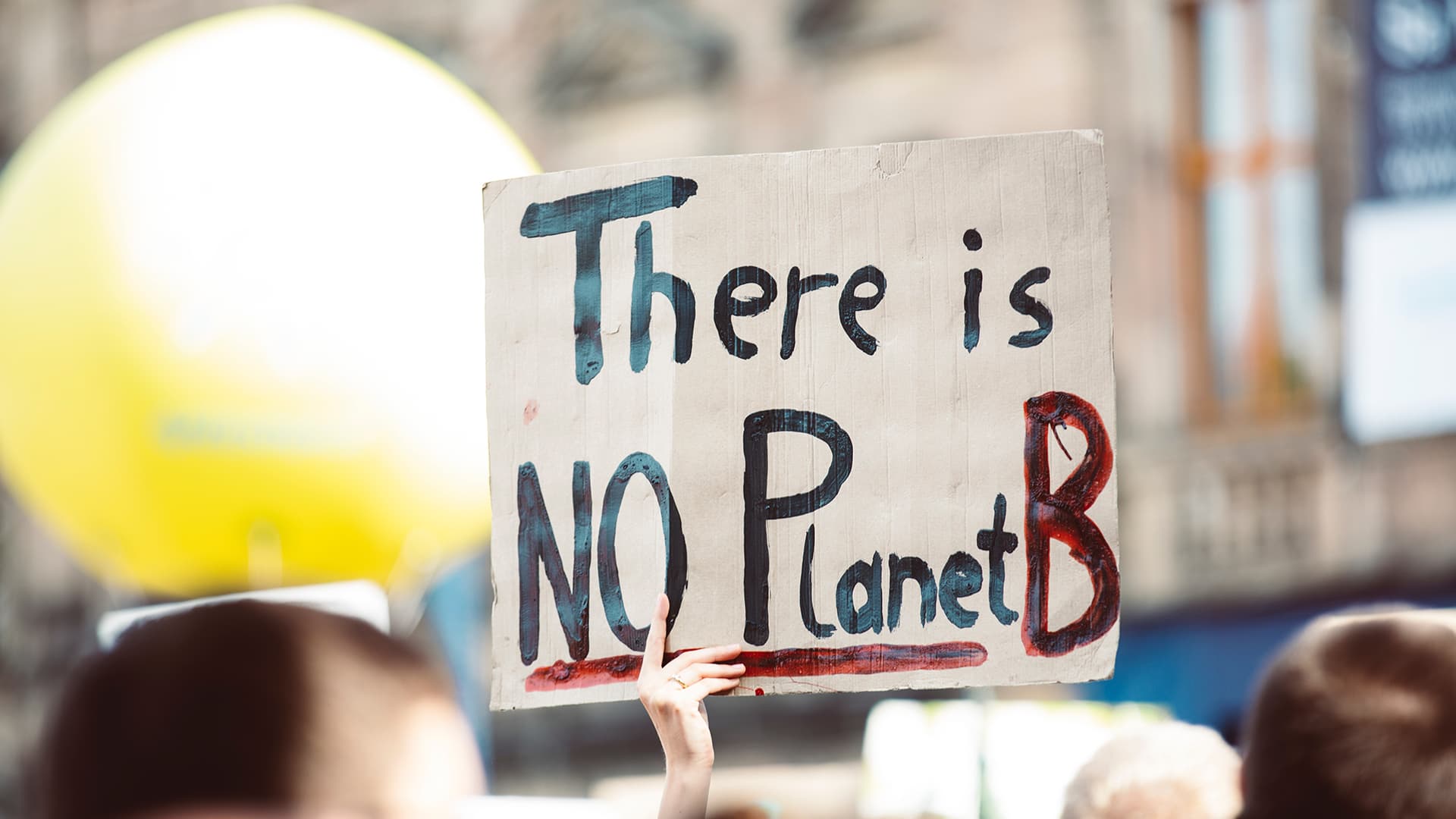
The climate emergency
Our planet is facing a climate emergency.
Around the world, the burning of fossil fuels has significantly changed the composition of our atmosphere. Temperatures are rising, and so is the scale of the threat. It’s down to all of us to meet it, and businesses have a leading role to play.
From sourcing materials to disposing of waste, business and industry threats to the environment continue to mount.
What is the impact of unsustainable business practices on the climate crisis?
Unsustainable business practices have a significant impact on the climate crisis. The consequences of these practices can include:
Habitat loss, ecosystem disruption and species extinction
Air and water pollution
Soil and water contamination
More extreme weather and changes to rainfall patterns
Extreme climatic events could have an impact on the supply and cost of food and threaten supply chains
Rising sea levels and melting ice caps
Business activity can also indirectly worsen the climate crisis. Around 80% of Scotland’s footprint comes from the products and materials we manufacture, use and throw away; so, if consumers dispose incorrectly of materials after sale or when suppliers and producers source goods unsustainably, this also puts pressure on our environment.
Businesses have a responsibility to contribute to a system-wide change. One that enables us all to choose more sustainable ways to live, use the things we need, and share resources.
Moving from a linear to a circular economy
At the moment, our economy is linear – a one-way flow of materials from extraction to manufacturing to use and disposal.
The abundance of affordable products has created an unprecedented, and unsustainable, demand for resources. Around 80% of Scotland’s carbon footprint comes from the goods, materials and services we produce, use and too often throw away after a single use. This is the single greatest cause of the climate crisis.
There is an opportunity for businesses to consider becoming more circular and create more sustainable supply chains to help tackle the causes and effects of climate change head on. By reducing waste and maximising the value of our increasingly limited resources, businesses can become part of the solution to the climate crisis.
A circular economy can reduce business costs
Creating new models that keep materials and products in use for longer can lead to increased income generation and new income streams.
A circular business model will also mean businesses will comply with environmental legislation and will help to avoid surprise policy changes that may come at a cost to your business, for example, the landfill tax or low emission zone charges.
A circular business model will improve your businesses reputation
Consumers are looking to businesses to lead the way in sustainable practices and are making conscious decisions when it comes to shopping, in a bid to be more environmentally friendly and save money. A report by Recycling Lives revealed that 81% of people prefer to buy from sustainable sellers, which means that brands that fail to be authentically sustainable are at risk of damaging their reputation and losing customers.
What can businesses do to help the climate emergency?
Finding the biggest cause of your business’s carbon footprint is a crucial starting point for improving it. Being armed with the evidence will help your business to reduce emissions, prioritise climate-friendly growth and accelerate Scotland’s journey to net- zero.
Every organisation is different, but we all have a collective responsibility to act and create a stronger, safer, fairer and more sustainable economy in Scotland.
